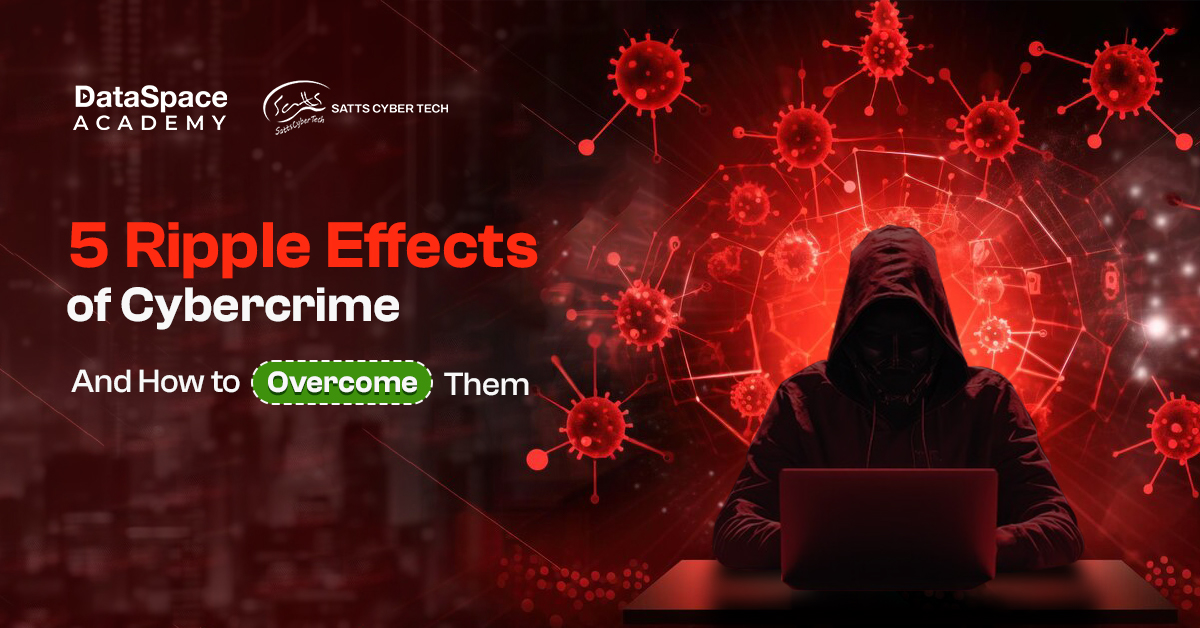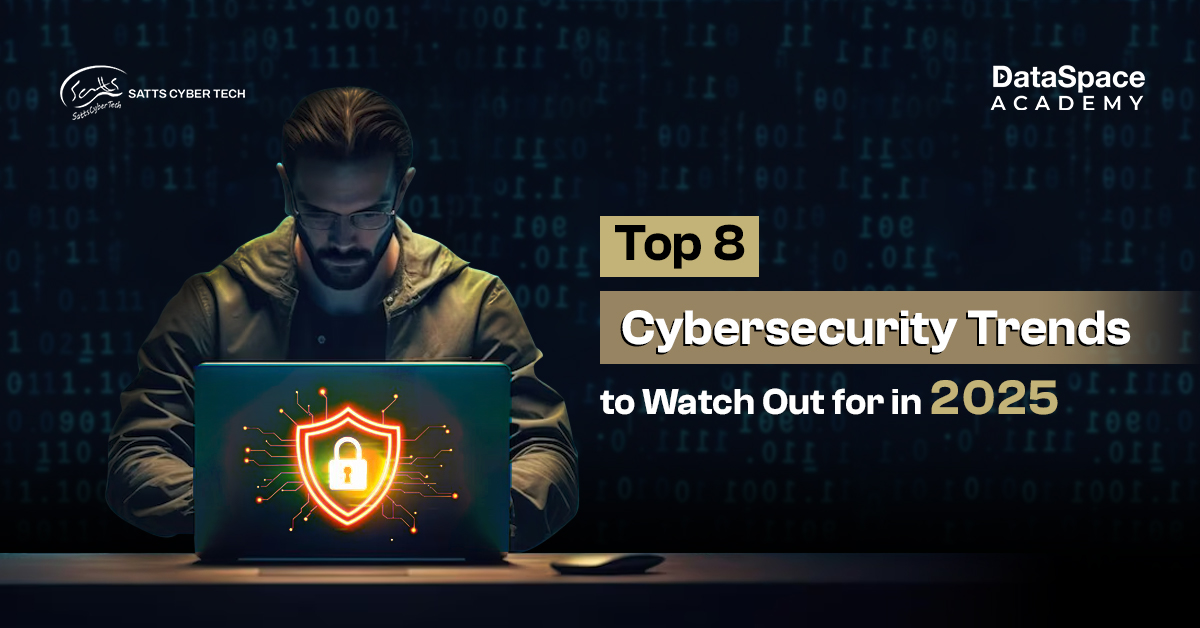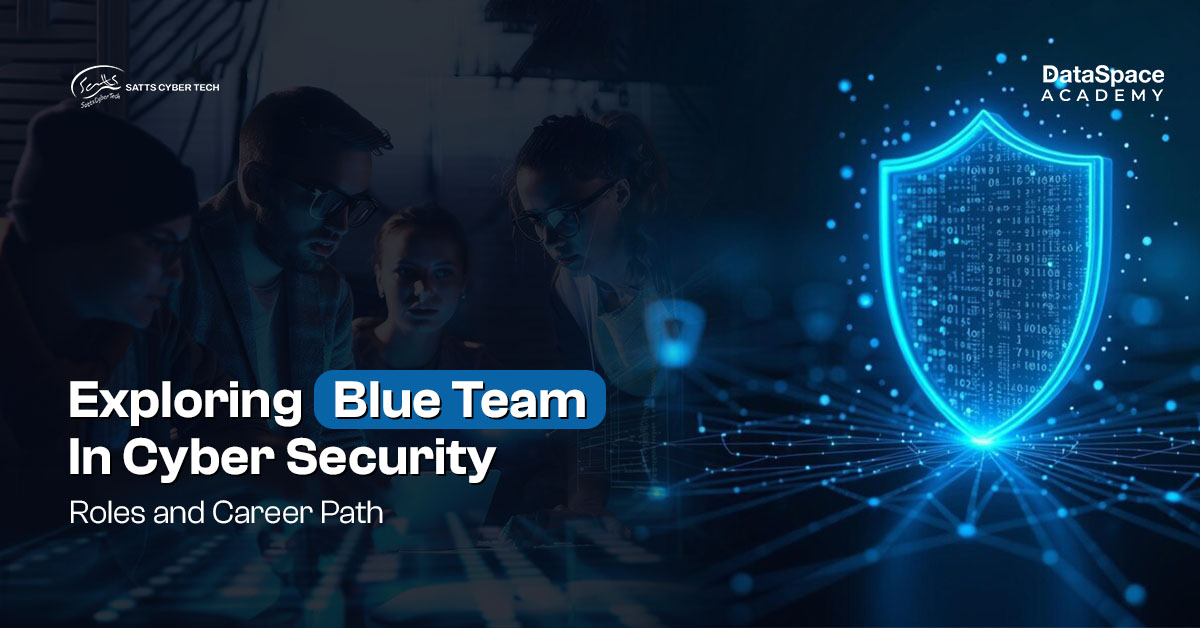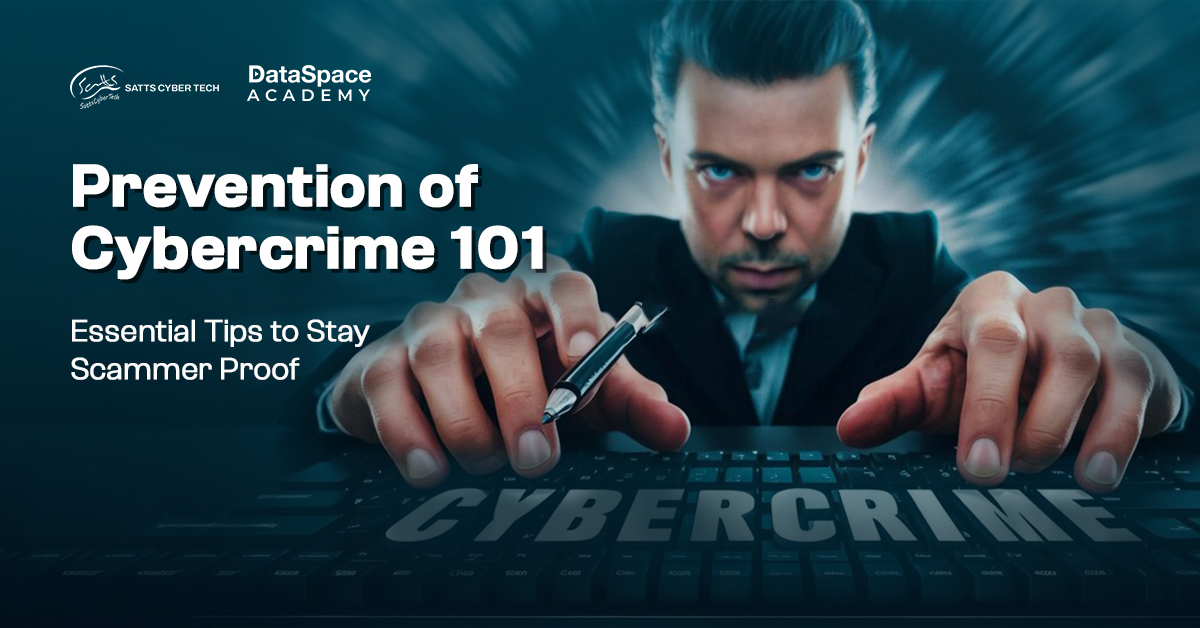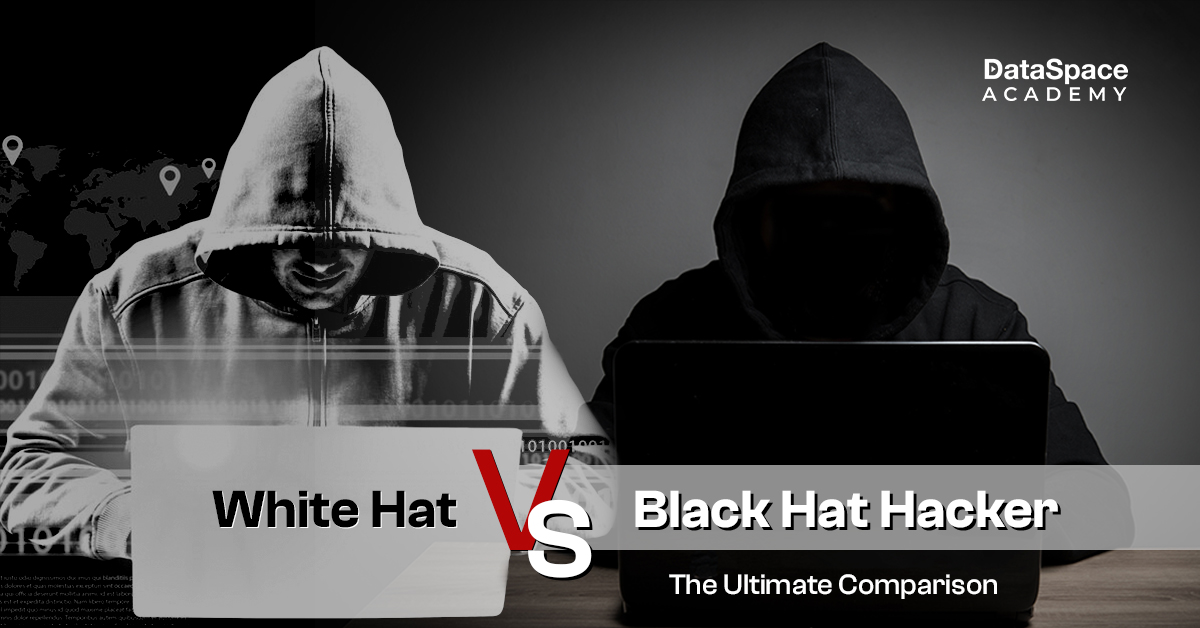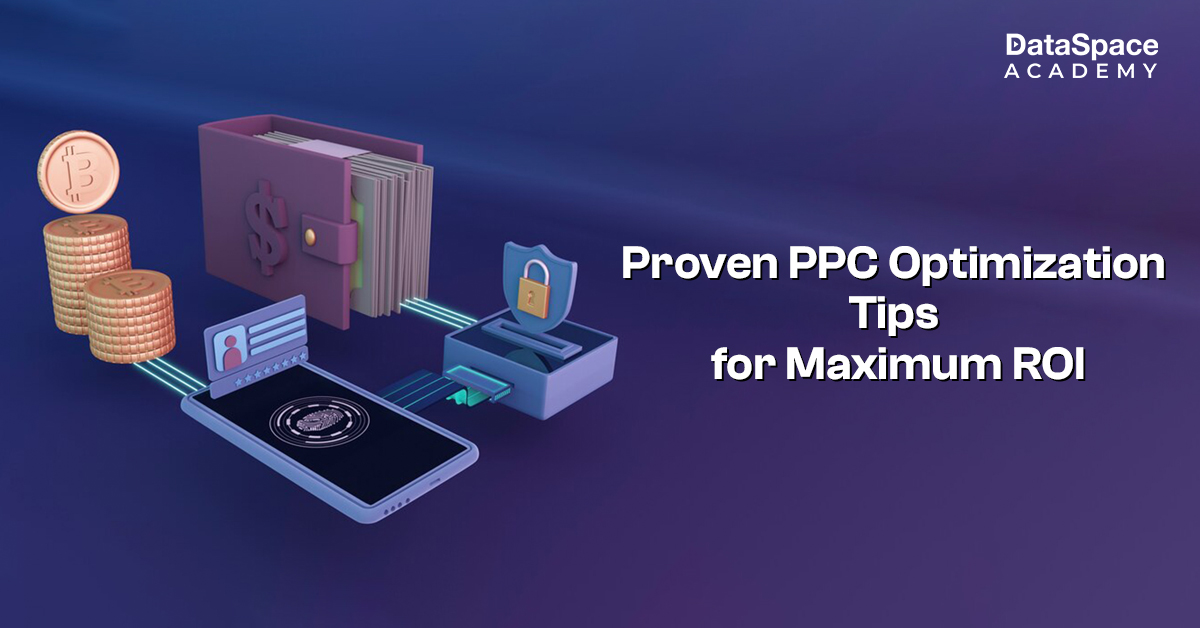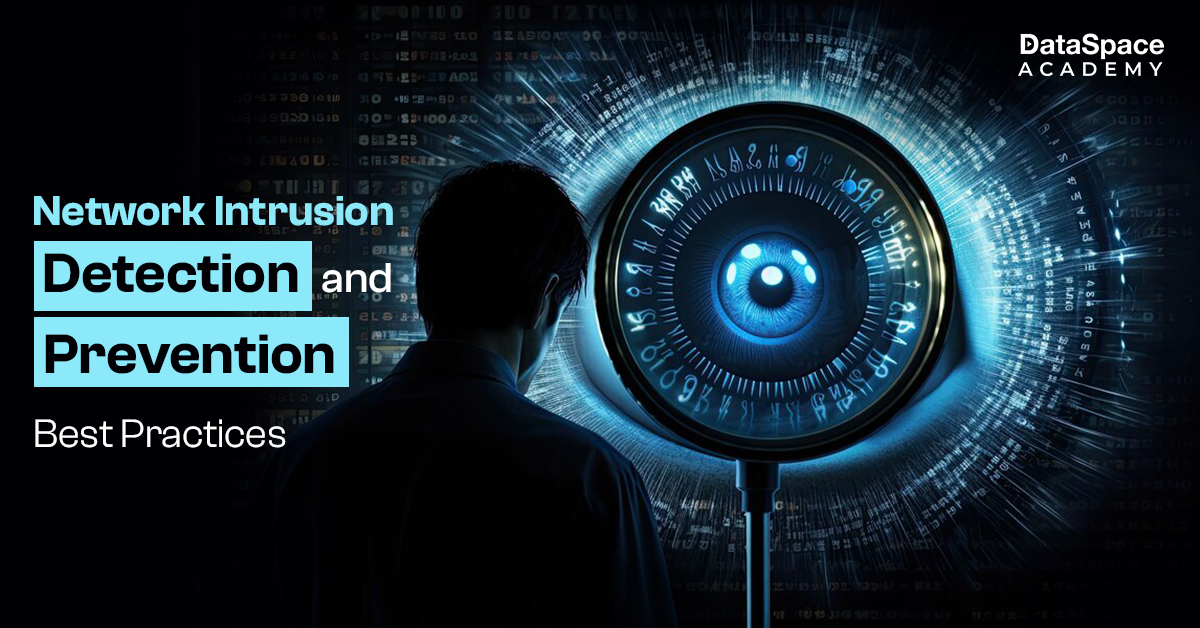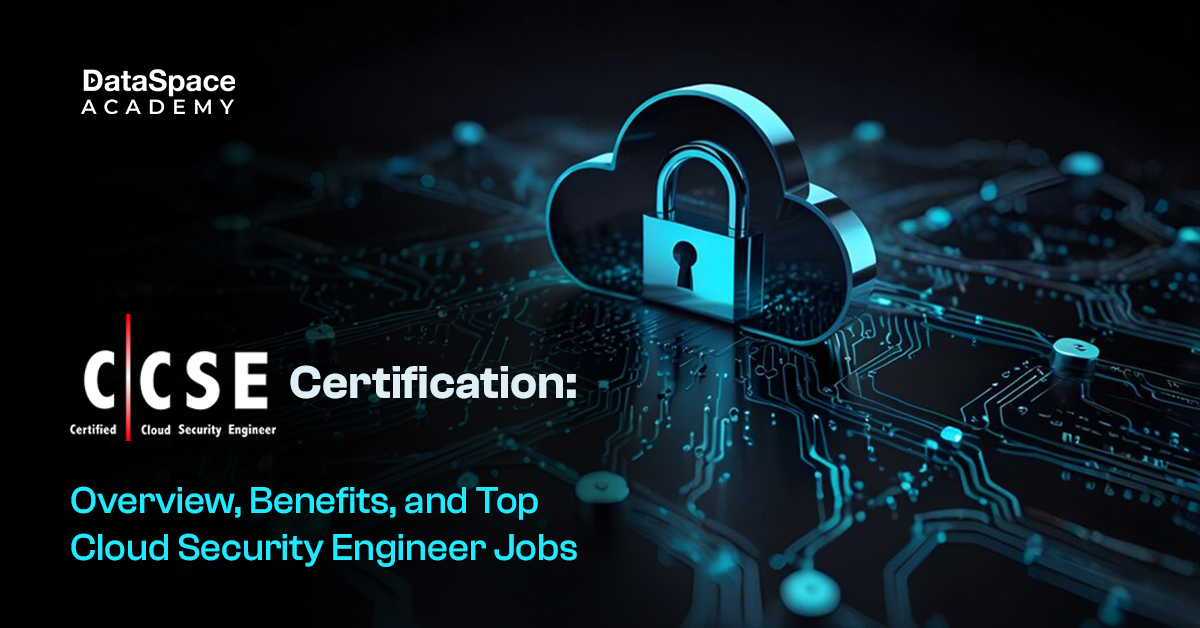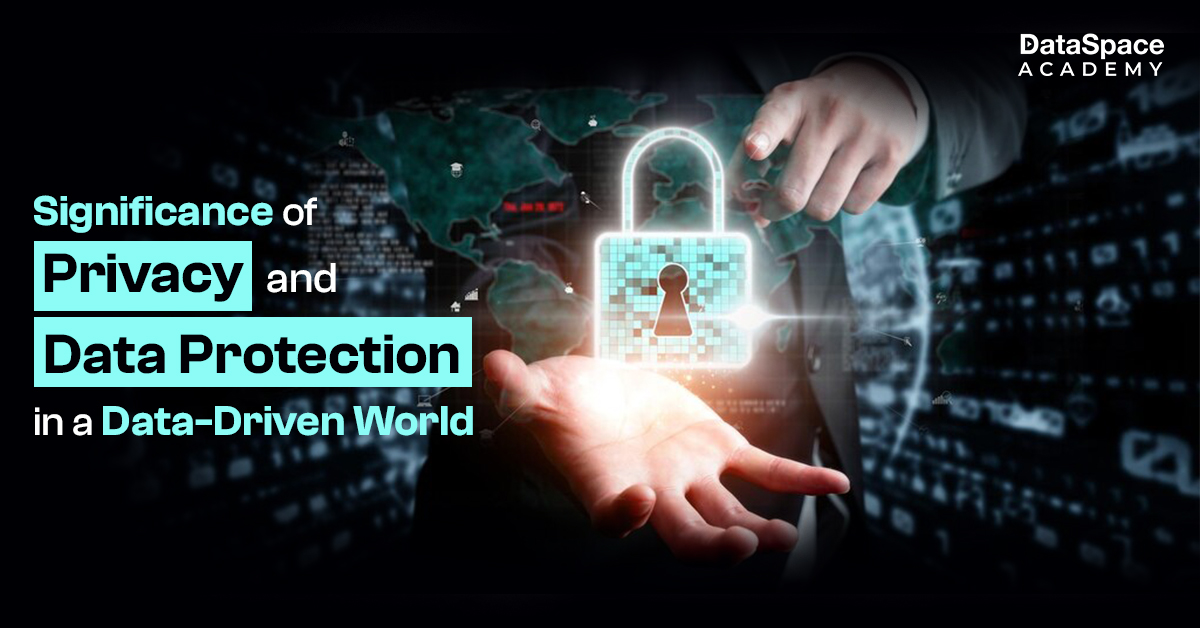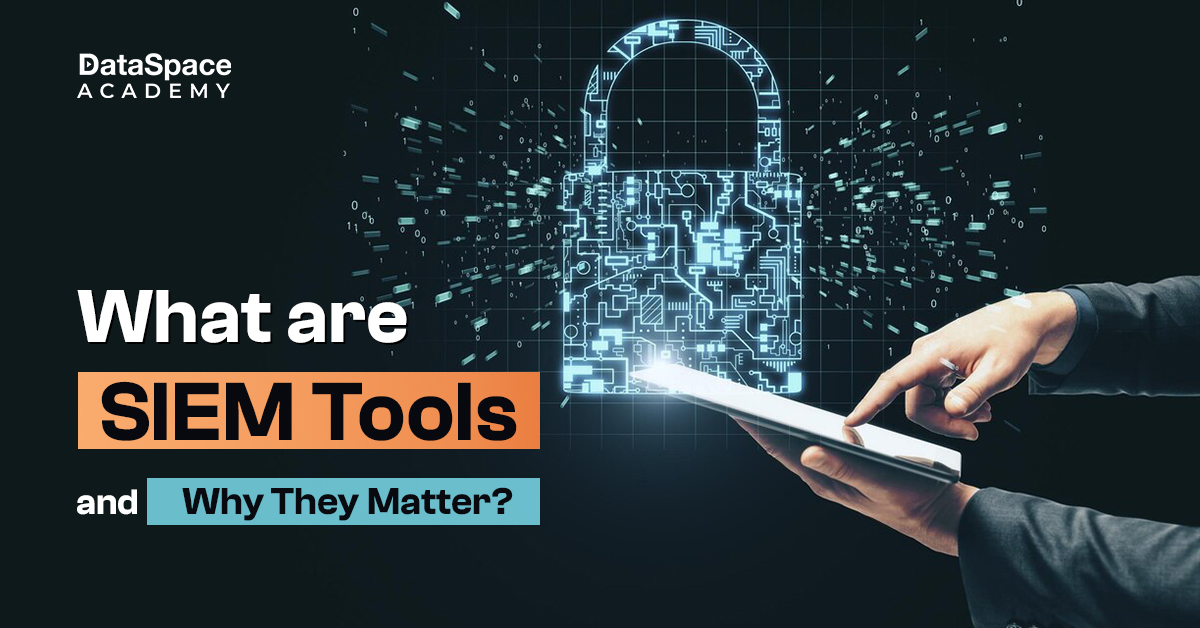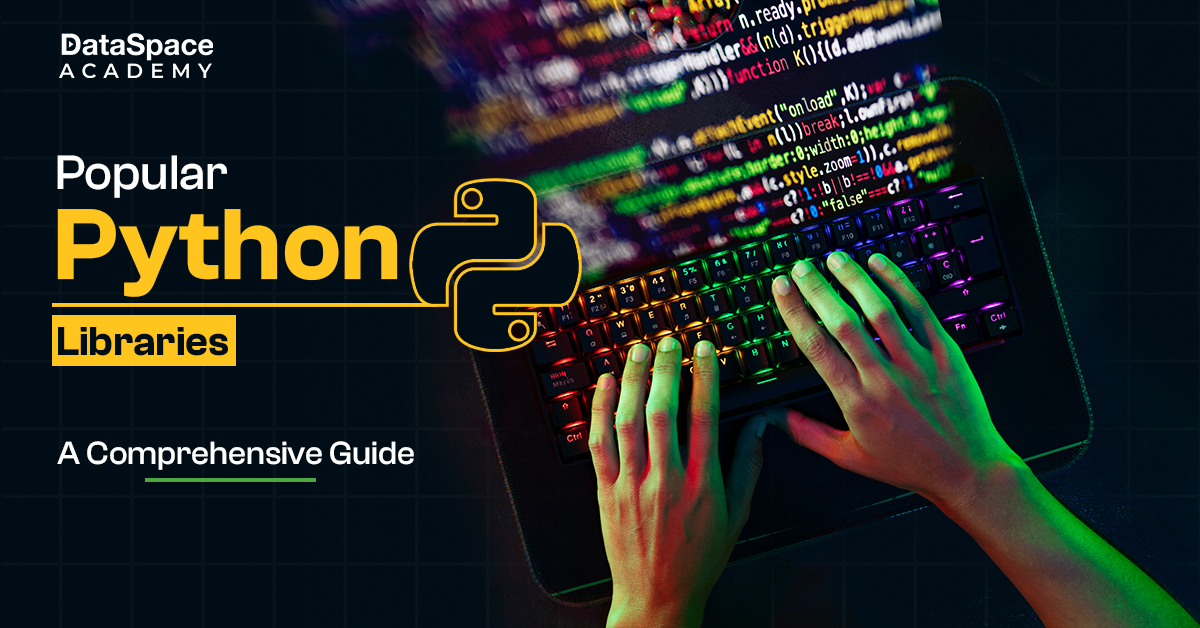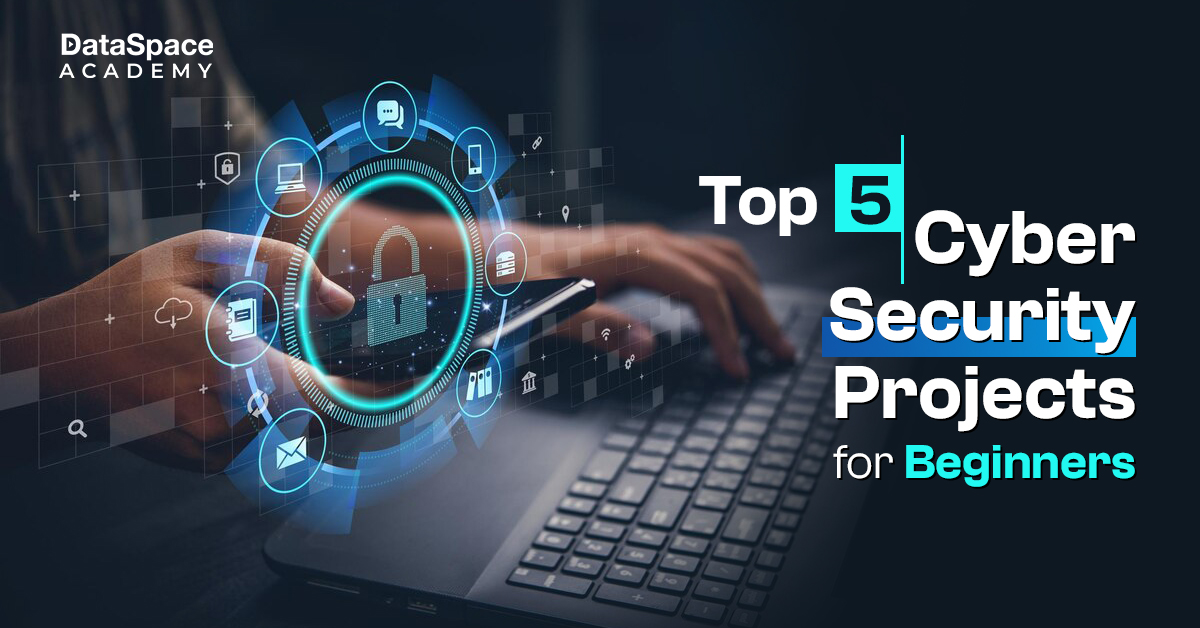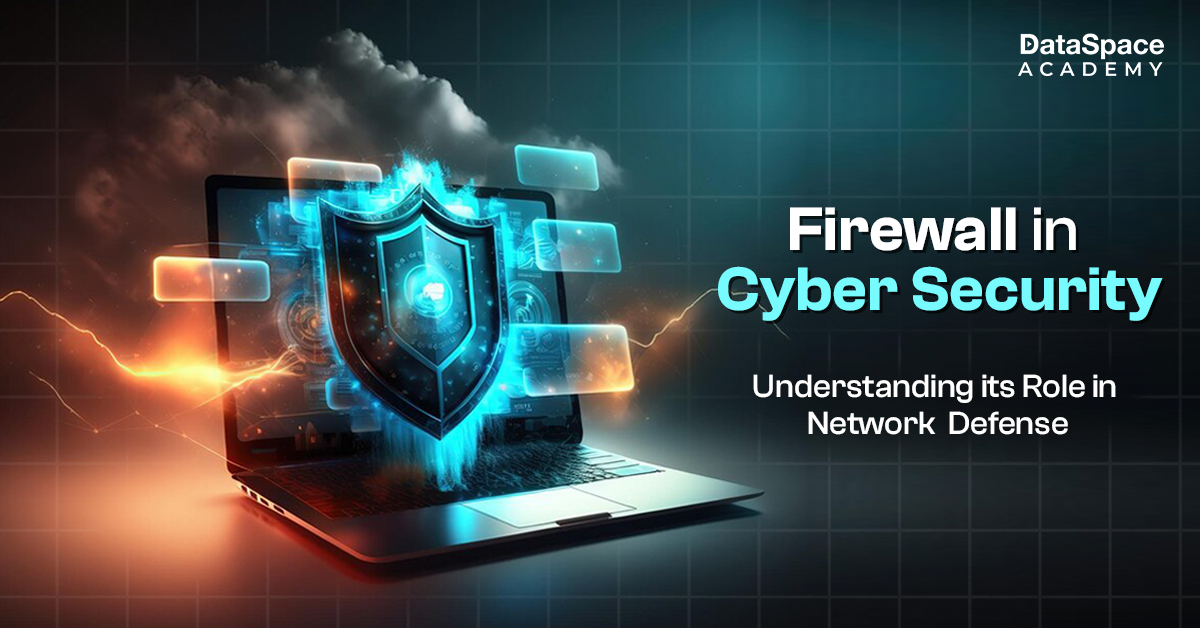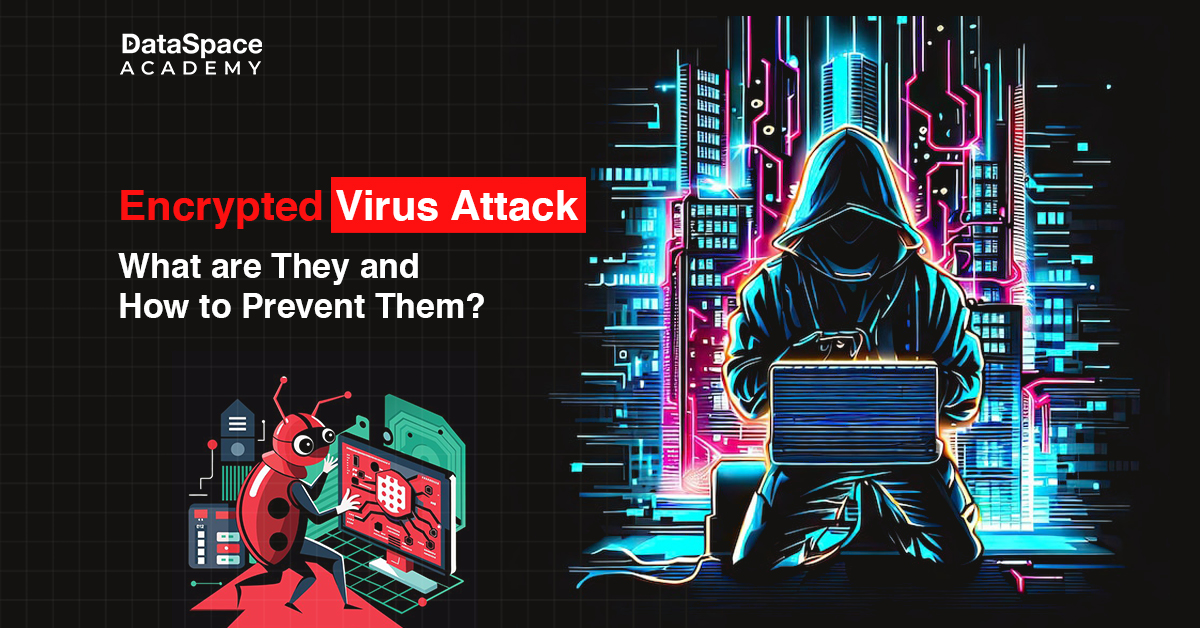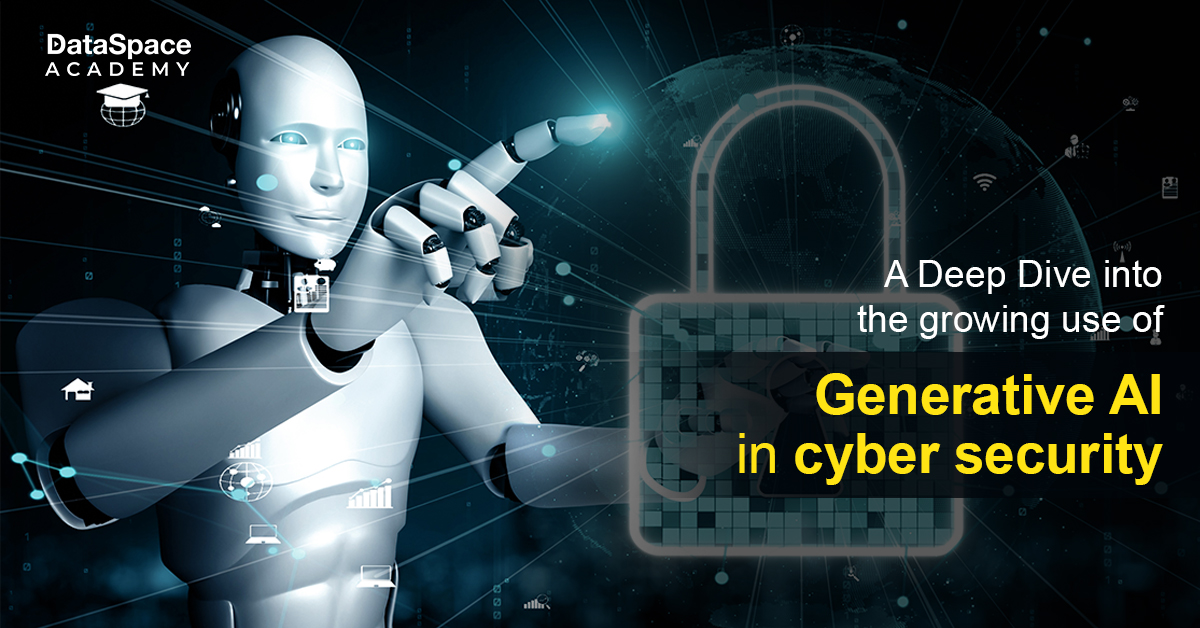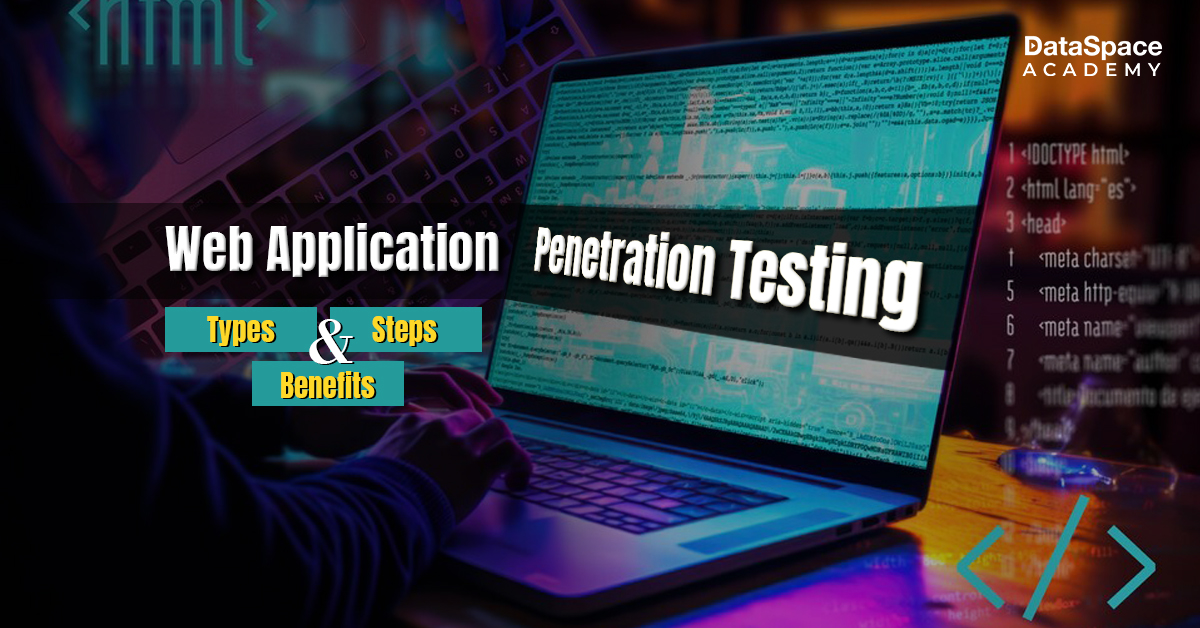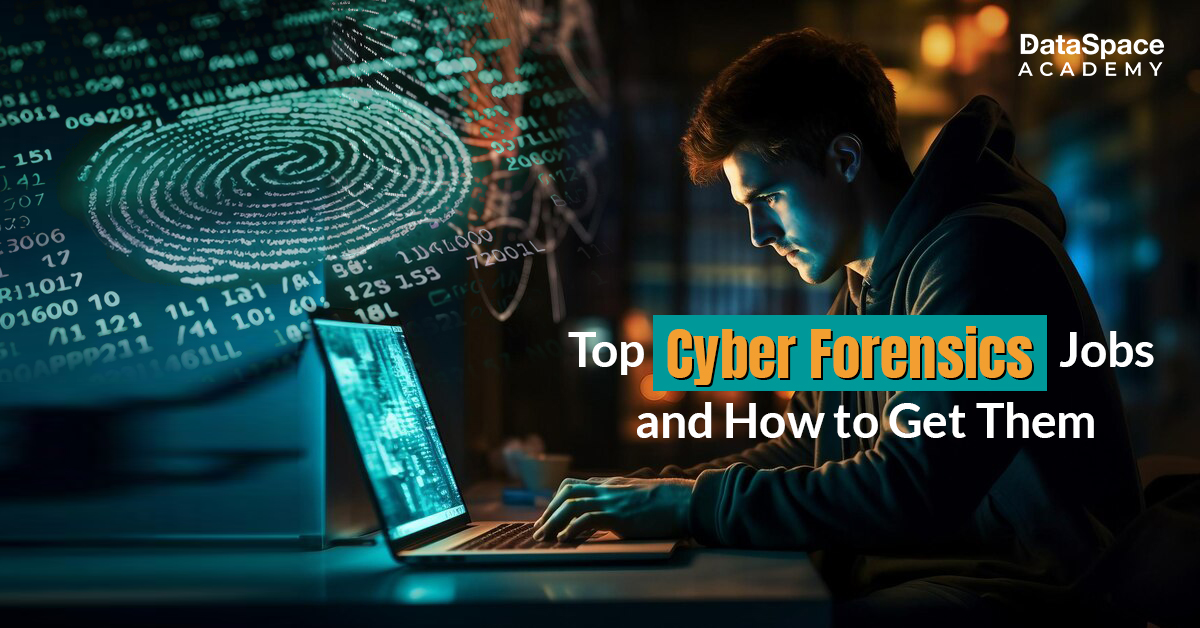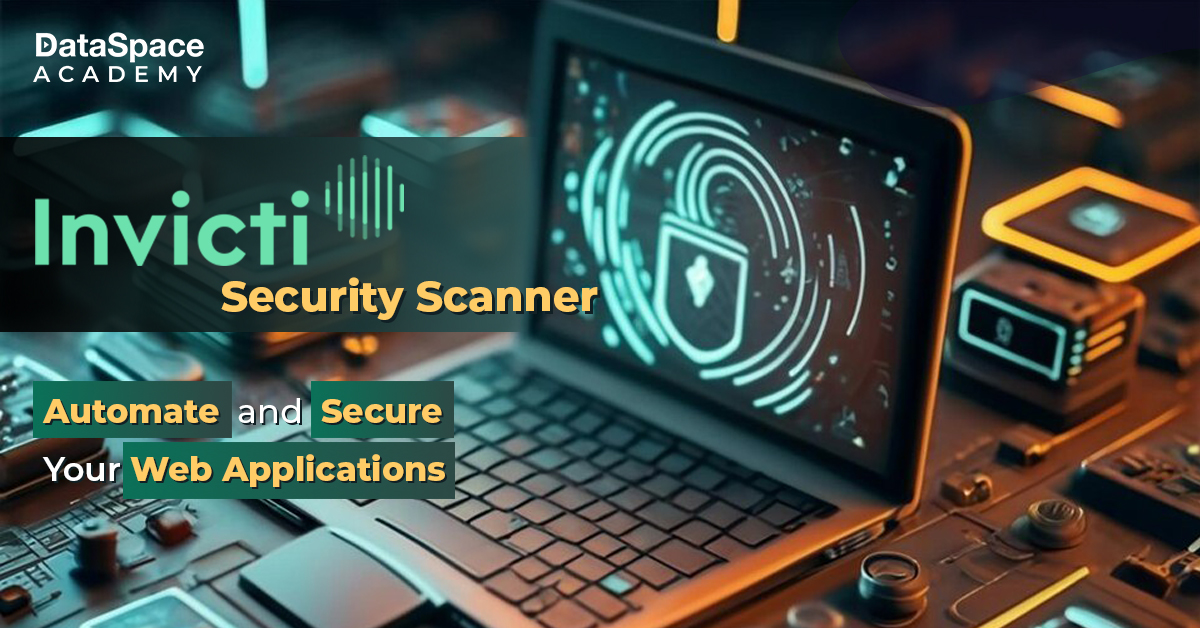Building a Career from IT Auditing to Cyber Security
Last Updated : 25 May, 2023
 98.66K
98.66K

Cybersecurity is one of the most promising job-generating domains today. With a 0%-unemployment rate, higher wages, and better career prospects – everyone wants to be part of cyber security. Interestingly, this domain is attracting professionals from other industries, especially from the tech domain. Tech professionals such as IT auditors are ready to make a career switch into cybersecurity. And these professionals have all the necessary skills and knowledge to make a head-start in this field.
IT auditors are professionals who assess the security and effectiveness of an organisation’s information technology (IT) systems and controls. Since cyber security also involves protecting IT infrastructure from hackers, an IT auditor can easily build a thriving career in the domain. In short, a career transition from IT audit to cybersecurity could be highly rewarding.
Who Are IT Auditors?
Information Technology (IT) auditors are responsible for assessing, identifying, and evaluating IT processes and technologies. IT auditors evaluate the IT controls, design, and document IT audit tests and their reports to identify reportable issues.
Some of their key responsibilities include:
- Developing an audit plan
- Interacting with process owners to understand their control environment
- Sorting appropriate population of samples
- Performing testing on the selected samples
- Collecting evidence
- Documenting results
Although they play an important role in managing a company’s IT infrastructure, IT auditors are under the flag amidst the current layoff cycle. Major fintech, consulting firms, and financial firms have forwarded pink slips to a massive percentage of their employees due to possible news of recession (source: economictimes.indiatimes.com).
Why Switch Career in Cybersecurity?
Cyber security is currently a highly promising career domain with a zero-unemployment rate. Thus, even amidst the ongoing layoffs, the demand for cyber security professionals is at its all-time high. The world today needs close to 3.5 million skilled cybersecurity professionals (source: cybersecurityventures.com) to protect organisations from an alarming rise in cybercrimes.
As businesses get more closely involved with technology, shifting from on-prem to cloud environments, the risk of online attacks on their systems rises side-by-side. These establishments are urgently looking for skilled professionals to look after their security processes and technologies (such as system networks, devices, and apps) and protect them from hackers.
Unfortunately, there is an acute shortage of professionals in the security domain. In India alone, there is a 30% demand-supply gap for cybersecurity jobs (source: economictimes.indiatimes.com). Currently, close to 25,000 cyber security jobs remain open for threat analysts, ethical hackers, penetration testers, and cyber forensics analysts’ profiles. Organisations are willing to pay close to INR 20 LPA or more for the right candidate depending on their experience and location (source: Glassdoor.com).
With the rising demands for cybersecurity professionals and the wide opportunities available, a career switch from IT auditing to cybersecurity will be rewarding.
Why Do IT Auditors Need To Understand Cybersecurity?
The job of an IT auditor involves identifying and evaluating the organisation’s information security controls to reduce the risks associated with online attacks, security incidents, and data breaches. A deeper understanding of cybersecurity helps IT auditors in protecting the company’s critical assets and systems from cyber-attacks. They can also provide valuable insights and recommendations to help organisations improve their overall security.
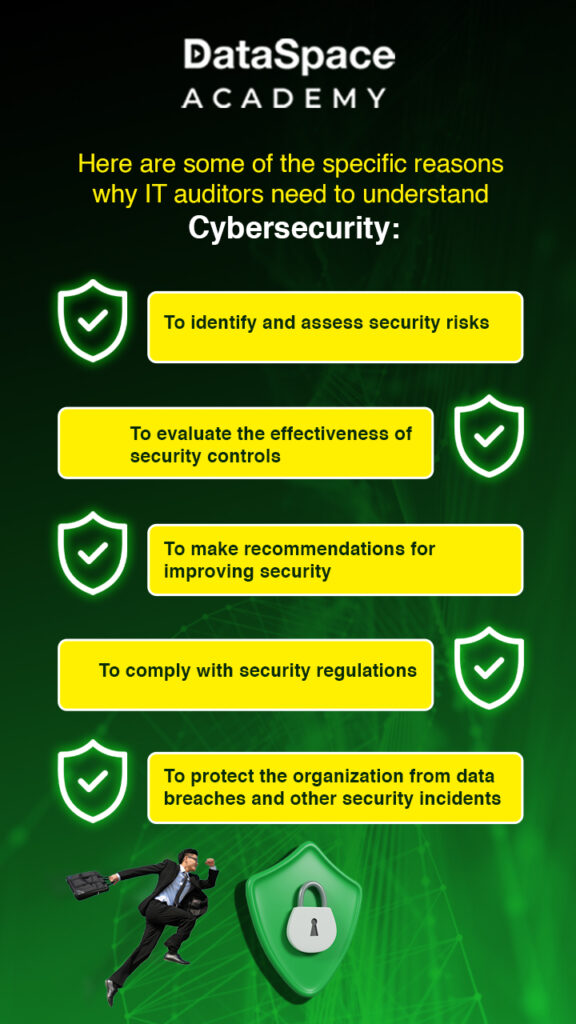
Here are a few benefits when IT auditors understand cybersecurity:
-
Improved security posture
IT auditors can help organisations identify and mitigate security risks, leading to a more secure IT environment.
-
Reduced risk of data breaches
By identifying and addressing security vulnerabilities, IT auditors can help organisations reduce the risk of data breaches.
-
Increased compliance with regulations
IT auditors can help organisations comply with security regulations to protect them from fines and other penalties.
Career Switch from IT Auditing to Cybersecurity – The Steps
Cybersecurity demands a specific technical understanding and expertise in network and system administration and management, security principles, and authentication systems.
For someone trying to shift from IT auditing to cyber security, she/he should start with the foundational courses to learn more about the basics of cyber security. Once they are done with the fundamentals, they can gradually switch to advanced pen-testing or vulnerability certs.
Along with dedicated classroom education, hands-on experience is critical for a career switch in cyber security. Here is a detailed roadmap:
-
Start with the Basics:
A learner can either take beginner online courses or read educational resources on the topics.
-
Get Certified:
Certifications validate a candidate’s skills and knowledge in cyber security. Some popular certifications such as Cyber Security Essential Program, Certification In Ethical Hacking, or CompTIA Security+ are popular certs for beginners.
-
Advanced Specialisation:
The specialisation helps a candidate develop deep expertise in a particular domain of cyber security. Some of the popular cyber security specialisations include Forensic Analysis, Certification In OSCP Training, and Penetration Testing.
-
Hands-on Experience:
Along with cyber security certifications, a learner needs hands-on experience to develop critical thinking and evaluation skills. For hands-on experience, a candidate can either work on security-related projects, participate in bug bounty programs or hackathons, or contribute to open-source security tools to showcase their merit.
With proper certifications and experience, an IT auditor can successfully switch to cyber security profiles. They can start with entry-level roles to gain relevant experience before moving on to roles with greater responsibilities. Along with carrying on with their jobs, these professionals need to network within communities and participate in meetups to build connections within the field and stay up-to-date with the latest industry trends.
There are many reasons why IT auditors might want to transition to a career in cybersecurity. Cybersecurity is a growing field with high demand for qualified professionals. IT auditors already have many of the skills and knowledge needed to be successful in cybersecurity, such as an understanding of IT systems and controls, vulnerability assessment, and auditing procedures.
Dataspace Academy is helping professionals in the transition into cyber security. Are you willing to make the career switch?
Who Are IT Auditors?
Information Technology (IT) auditors are responsible for assessing, identifying, and evaluating IT processes and technologies. IT auditors evaluate the IT controls, design, and document IT audit tests and their reports to identify reportable issues.
Some of their key responsibilities include:
- Developing an audit plan
- Interacting with process owners to understand their control environment
- Sorting appropriate population of samples
- Performing testing on the selected samples
- Collecting evidence
- Documenting results
Why Cybersecurity As A Career?
Cyber security is currently a highly promising career domain with a zero-unemployment rate. Thus, even amidst the ongoing layoffs, the demand for cyber security professionals is at its all-time high. The world today needs close to 3.5 million skilled cyber security professionals (source: cybersecurityventures.com) to protect organisations from an alarming rise in cybercrimes.
As businesses get more closely involved with technology, shifting from on-prem to cloud environments, the risk of online attacks on their systems rises side-by-side. These establishments are urgently looking for skilled professionals to look after their security processes and technologies (such as system networks, devices, and apps) and protect them from hackers.
Unfortunately, there is an acute shortage of professionals in the security domain. In India alone, there is a 30% demand-supply gap for cybersecurity jobs (source: economictimes.indiatimes.com). Currently, close to 25,000 cyber security jobs remain open for threat analysts, ethical hackers, penetration testers, and cyber forensics analysts' profiles. And organisations are willing to pay close to INR 20 LPA or more for the right candidate depending on their experience and location (source: Glassdoor.com).
With the rising demands for cybersecurity professionals and the wide opportunities available, a career transition from IT auditing to cybersecurity will be rewarding.
Why Do IT Auditors Need To Understand Cybersecurity?
The job of an IT auditor involves identifying and evaluating the organisation's information security controls to reduce the risks associated with online attacks, security incidents, and data breaches. A deeper understanding of cybersecurity helps IT auditors in protecting the company’s critical assets and systems from cyber-attacks. They can also provide valuable insights and recommendations to help organisations improve their overall security.
 Here are a few benefits when IT auditors understand cybersecurity:
1. Improved security posture: IT auditors can help organisations identify and mitigate security risks, leading to a more secure IT environment.
2. Reduced risk of data breaches: By identifying and addressing security vulnerabilities, IT auditors can help organisations reduce the risk of data breaches.
3. Increased compliance with regulations: IT auditors can help organisations comply with security regulations for protecting them from fines and other penalties.
Here are a few benefits when IT auditors understand cybersecurity:
1. Improved security posture: IT auditors can help organisations identify and mitigate security risks, leading to a more secure IT environment.
2. Reduced risk of data breaches: By identifying and addressing security vulnerabilities, IT auditors can help organisations reduce the risk of data breaches.
3. Increased compliance with regulations: IT auditors can help organisations comply with security regulations for protecting them from fines and other penalties.
Career Transition from IT Auditing to Cybersecurity- the steps
Cybersecurity demands a specific technical understanding and expertise in network and system administration and management, security principles, and authentication systems.
For someone trying to shift from IT auditing to cyber security, s/he should start with the foundational courses to learn more about the basics of cyber security. Once they are done with the fundamentals, they can gradually switch to advanced pen-testing or vulnerability certs.
Along with dedicated classroom education, hands-on experience is critical for building a career in cyber security. Here is a detailed roadmap:
- Start with the basics: A learner can either take up beginner online courses or read educational resources on the topics.
- Get certified: Certifications validate a candidate’s skills and knowledge in cyber security. Some popular certifications such as Cyber Security Essential Program, Certification In Ethical Hacking, or CompTIA Security+ are popular certs for beginners.
- Advanced specialisation: The specialisation helps a candidate develop deep expertise in a particular domain of cyber security. Some of the popular cyber security specialisations include Forensic Analysis, Certification In OSCP Training, and Penetration Testing.
- Hands-on experience: Along with cyber security certifications, a learner needs hands-on experience to develop critical thinking and evaluation skills. For hands-on experience, a candidate can either work on security-related projects, participate in bug bounty programs or hackathons, or contribute to open-source security tools to showcase their merit.
 98.66K
98.66K



